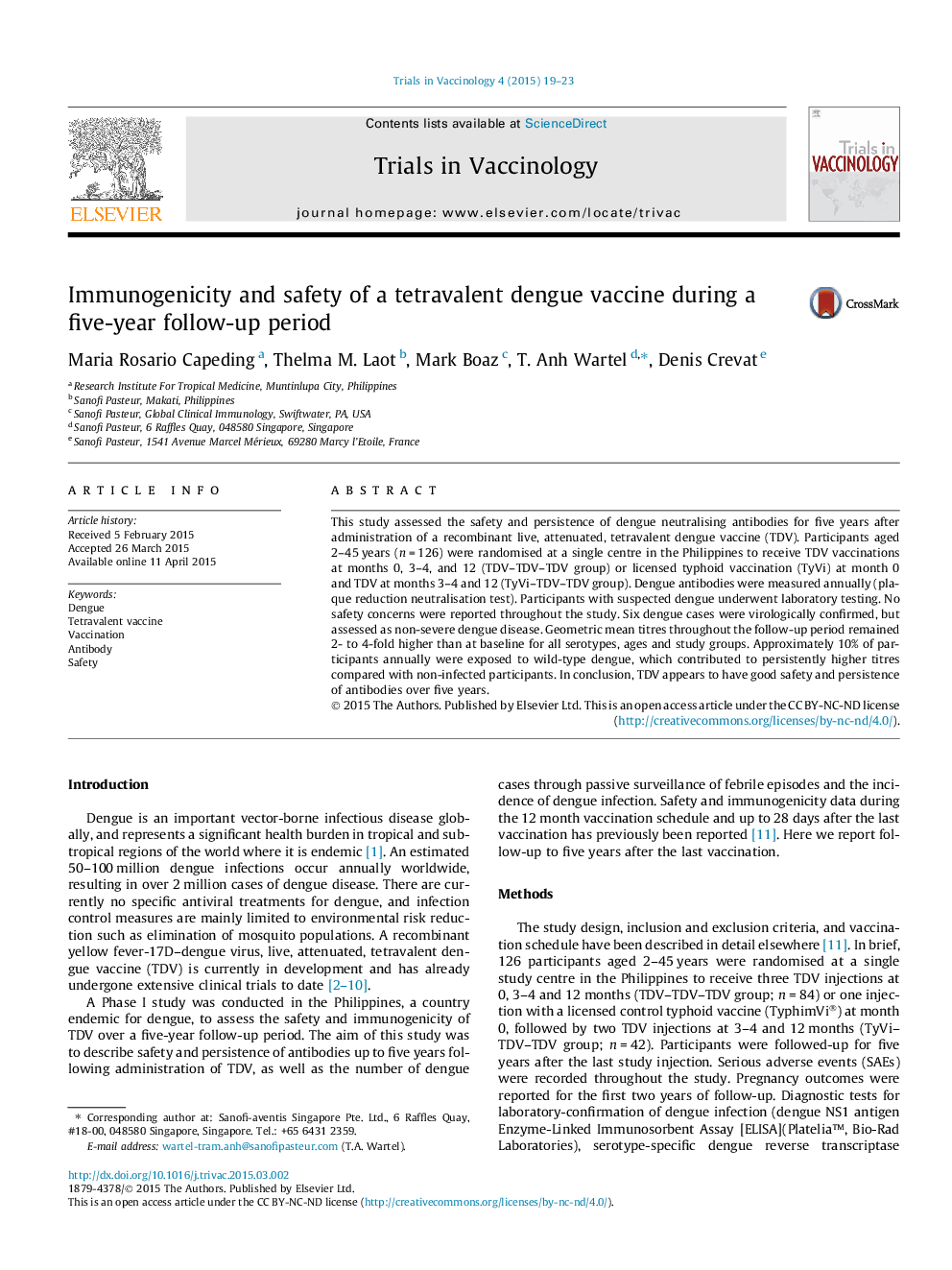| Article ID | Journal | Published Year | Pages | File Type |
|---|---|---|---|---|
| 2474369 | Trials in Vaccinology | 2015 | 5 Pages |
•We assessed dengue antibody persistence after vaccination with a dengue vaccine.•Exposure to wild-type dengue contributed to antibody persistence.•There were no safety concerns with the tetravalent dengue vaccine during follow-up.
This study assessed the safety and persistence of dengue neutralising antibodies for five years after administration of a recombinant live, attenuated, tetravalent dengue vaccine (TDV). Participants aged 2–45 years (n = 126) were randomised at a single centre in the Philippines to receive TDV vaccinations at months 0, 3–4, and 12 (TDV–TDV–TDV group) or licensed typhoid vaccination (TyVi) at month 0 and TDV at months 3–4 and 12 (TyVi–TDV–TDV group). Dengue antibodies were measured annually (plaque reduction neutralisation test). Participants with suspected dengue underwent laboratory testing. No safety concerns were reported throughout the study. Six dengue cases were virologically confirmed, but assessed as non-severe dengue disease. Geometric mean titres throughout the follow-up period remained 2- to 4-fold higher than at baseline for all serotypes, ages and study groups. Approximately 10% of participants annually were exposed to wild-type dengue, which contributed to persistently higher titres compared with non-infected participants. In conclusion, TDV appears to have good safety and persistence of antibodies over five years.
